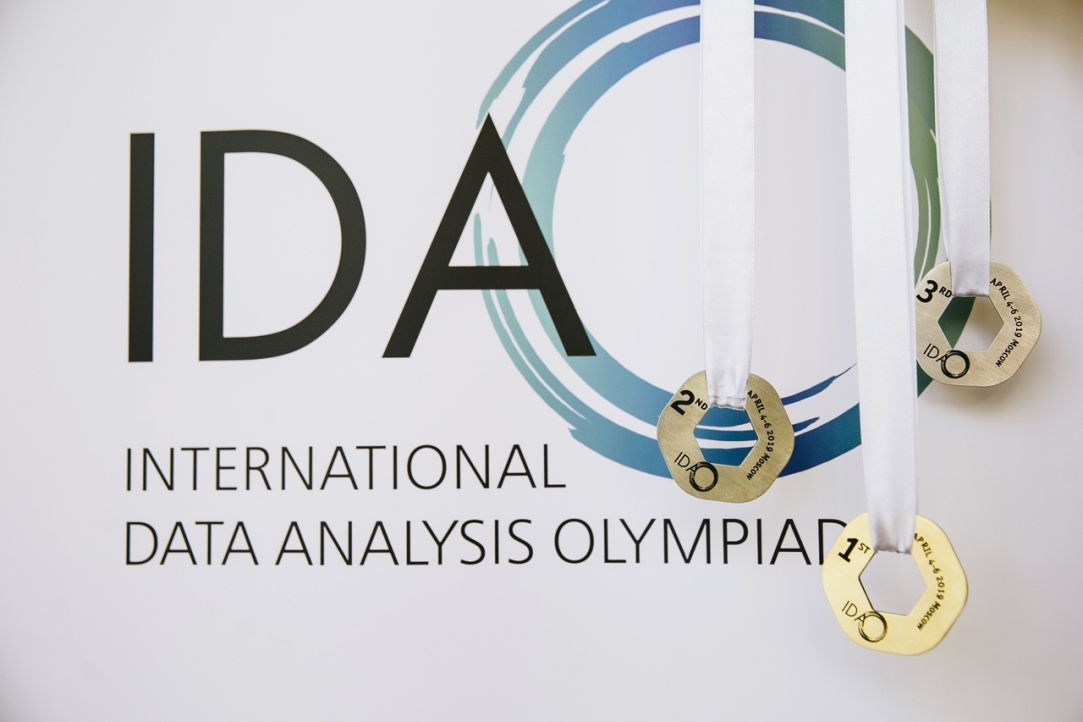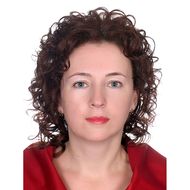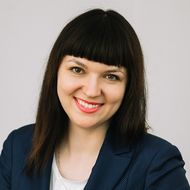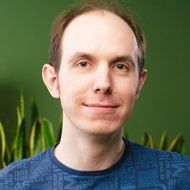Winners of the International Data Analysis Olympiad (IDAO) Announced

The Faculty of Computer Science at HSE University, Yandex, and this year’s platinum partner, Otkritie Bank, held the International Data Analysis Olympiad (IDAO) for the fourth time. This year’s first-place winner was the ‘random team’, Ilya Kornakov and Kirill Borozdin, from Switzerland. Second and third places went to the Russian teams ‘Mylene Farmer’ (Vasiliy Rubtsov, Anvar Kurmukov) and ‘Shizika’ (Dmitry Simakov, Nikita Churkin).
In the final round of the competition, the 32 strongest teams, representing 15 countries, competed against each other. They had 36 hours to solve the challenge posed by Otkritie Bank: once a month, it selects its most loyal customers and generates personalised consumer loan offers for them, after which they are conveyed to customers by call centre managers. If a client decides to take them up on the loan offer, the Bank receives a percentage of the income generated. The Bank spends differing amounts of resources on communicating with different clients. The task for the IDAO participants was to create a list of clients with whom interaction would generate the most profit.
The qualifying round was devoted to the search for dark matter, one of the few remaining mysteries of fundamental physics. Dark matter cannot be seen because it does not interact with light and only interacts very weakly with ordinary matter. The task of the IDAO participants was to build a model that recognises some known processes in observations. These processes could then be excluded from the search for dark matter.
‘In the first round of IDAO we had to solve a physics problem using machine learning, and in the final round we were sent a Bank dataset and asked to solve a business challenge. I learned a lot while solving those problems, and it was nice to compete with the best data scientists from all over the world. I would like to thank the organisers for their excellent work and say that I am already looking forward to the next IDAO,’ says Sudarshan Kumar, a QuantumCurious team member from India.
‘We really enjoyed working as a team on the IDAO challenges,’ says Raphael Surti of the French ‘data o plomo’ team. ‘The problems were very different — ranging from finance to physics — and it was very interesting and even fun to compete with the solutions of other teams.’
A total of 648 teams took part in this year’s Olympiad, with Russia, India, the USA, Peru, and France being the most represented countries.
Ilya Kornakov, random team, 1st place, Switzerland

‘Both members of our team are from Russia, but we are now working in Zurich as software engineers. I really liked IDAO 2021, especially the task from the first part — it was very non-standard, because you had to predict something that was not in the training sample. I think that such challenges are more interesting in principle, but still I really enjoyed both challenges. I would like to thank the organisers of the competition for them.’
Kirill Borozdin, random team, 1st place, Switzerland

‘I was born in Russia but now work in Switzerland. I would like to say that IDAO-2021 is a great competition. The Olympiad consisted of two stages: in the first stage we got a task from the world of physics. It was very unconventional, and I personally really liked it. The task of the second stage was connected with finance — it was more typical, but nevertheless it was also interesting to solve. I would like to thank the organizers for this excellent Olympiad.’
Anvar Kurmukov, Mylene Farmer, 2nd place, Russia

‘My teammate Vasiliy Rubtsov and I are both graduates of the Master's programme of the Faculty of Computer Science. Vasiliy now works as a senior data scientist at Avito, and I am earning my Doctoral degree at HSE University. The task of this year's final was to predict which of the bank's clients would be more likely to buy a product they were offered, due to calls from the call centre. Each call takes time and costs money, and we would like to spend those resources on calling customers who are more likely to buy the product. In our solution, we used a binary classification — we determined when the Bank's costs would be lower than the benefit that could be gained from selling the product to the customer. We also tried regression, but it turned out that binary classification works better. Our final solution was a mixed solution, consisting of XGBoost and LightGBM predictors, and it worked perfectly. As usual, the organisation of IDAO was excellent, and I would like to thank the organisers for it.’
The IDAO Olympiad is held for aspiring analysts and scientists to help them try their hand at real-world problems. Traditionally, participants are asked to solve a scientific problem in the competition’s qualifying round and a business-related problem in the final round. The platform for IDAO is Yandex.Contest, an online platform for organising programming competitions.
Tamara Voznesenskaya, Organising Committee Chair, First Deputy Dean, Faculty of Computer Science

Congratulations to the winners and thank you to all participants of the competition! Your passion contributes to the advancement of data science, keeping it interesting for students, schoolchildren, and young researchers. We are glad that the Olympiad continues to live and develop even in the difficult conditions of the pandemic. We very much hope that next year we will be able to organise an in-person final. Huge thanks to our co-organiser Yandex and our platinum partner, Otkritie Bank, for helping us organise and implement all the ideas.
Irina Plisetskaya, Partnership Coordinator, Deputy Dean for Development, Finance and Administration, Faculty of Computer Science

The IDAO Olympiad is an image project for the Faculty, allowing the Faculty of Computer Science to present itself to the international community as a leading centre in the field of computer science in Russia. On the one hand, the Olympiad is a platform where strong teams can test and practise their own skills in data analysis in a competitive setting, as well as meet and exchange experiences. On the other, the partner companies of the Olympiad can announce themselves as employers for IT specialists and make job offers at the event itself and, by setting a task, receiving a whole set of solutions and algorithms for optimizing business processes and offering the best products. Future plans are, of course, to expand the geographical range of participants and attract new partners, including international ones. IDAO 2021 has proved to be in demand among the ML community and we are grateful to Otkritie Bank, the platinum partner of the Olympiad, and Yandex, the co-organiser of the Olympiad, for their support. We are already starting to work on IDAO 2022, and it is possible that there will be some innovations and surprises for both the participants and our partners.
Stanislav Fedotov, Head of Moscow branch of Yandex School of Data Analysis

Every year, the world generates more and more data that can be used by both business and academia, and new ideas and approaches are emerging that are changing the way we think about what problems can be solved effectively with machine learning. The need for data analysts is therefore also growing steadily. We realise that we need to create an environment in which people interested in data science can prove themselves and use their knowledge and experience to solve non-trivial problems. This is exactly what the IDAO competition is all about. It gives participants the opportunity to work with cases from commercial companies and research laboratories on topics ranging from high-energy physics to optimising bank operations with customers.
Alexey Lavrov, CVM tribe leader and Otkritie Bank loyalty
The participants in the final did an excellent job on our specific task. I am sure that the ideas proposed will find practical application in our operations. I would like to point out that the IDAO is an excellent platform to demonstrate one's abilities to employers and to gain professional recognition. We have already started discussing possible internships and positions at our bank with the Olympiad finalists.
Irina Plisetskaya
See also:
HSE University and Yandex Education Release Free Online Handbook in Math and Data Analysis
Experts from the HSE Continuing Education Centre, the Master's Programme 'Artificial Intelligence', and Yandex Education have developed and published a free math handbook in data analysis (in Russian). This is the seventh online publication in a series of digital self-study textbooks dedicated to specific IT areas.
‘Bots Are Simply Imitators, not Artists’: How to Distinguish Artificial Intellect from a Real Author
Today, text bots like ChatGPT are doing many tasks that were originally human work. In our place, they can rewrite ‘War and Peace’ in a Shakespearean style, write a thesis on Ancient Mesopotamia, or create a Valentine’s Day card. But is there any way to identify an AI-generated text and distinguish it from works done by a human being? Can we catch out a robot? The Deputy Head of the HSE School of Data Analysis and Artificial Intelligence, Professor of the HSE Faculty of Computer Science Vasilii Gromov explained the answer in his lecture ‘Catch out a Bot, or the Large-Scale Structure of Natural Intelligence’ for Znanie intellectual society.
HSE and Indian Institute of Technology Delhi Agree on Joint Research Projects
HSE University-St Petersburg and the Indian Institute of Technology Delhi (IIT Delhi), a leading Indian university, have agreed to launch joint research projects in the field of social, political studies, humanities, and data analysis for master's students. On the Russian side, this work will be coordinated by the HSE St Petersburg School of Social Sciences.
Master's Programme in 'Data Science' Accredited by AI Alliance Russia
Based on the assessment results, the programme's strengths were identified as its broad coverage of educational disciplines, in-depth exploration of theoretical aspects in machine learning, the quality of staff, and the involvement of potential employers. This is the fifth educational programme at the HSE Faculty of Computer Science to receive this prestigious professional and public accreditation.
At Sarov Technopark, Researchers from HSE Faculty of Computer Science Discussed AI for Data Analysis in Physics
The Laboratory of Methods for Data Analysis of the HSE Faculty of Computer Science, in collaboration with the All-Russian Research Institute of Experimental Physics (RFNC-VNIIEF, Sarov) and the National Centre for Physics and Mathematics, recently held the Second All-Russian School-Seminar on High Energy Physics and Accelerator Technology.
HSE University and Samolet to Train Data Analysts in Development
HSE University’s Faculty of Computer Science and Samolet, one of Russia’s largest development companies, are launching a new Master’s Programme 'Data Science for Construction, Architecture and Engineering'. Samolet will finance the tuition of the 30 best applicants on the programme.
‘Smart and Bright: Winners of Data Analysis National Olympiad Announced
The awards ceremony for the winners of the Data Analysis National Olympiad (DANO) has taken place at the HSE Cultural Centre. This is the second time the Olympiad has been held, and was organized by HSE University together with Tinkoff. About 7,000 participants from different regions of Russia and 13 other countries took part in the event. Those coming in the top 25 of the individual ratings will be able to study at HSE University for free.
Over 7,000 Students Take Part in Data Analysis National Olympiad
Data analysis enthusiasts from different regions of Russia and 13 foreign countries recently took part in the Data Analysis National Olympiad (DANO). The results of the first round will be announced on October 20th.
HSE Faculty of Computer Science Celebrates its First Graduates of the Data Science and Business Analytics Programme
At the beginning of July, the Data Science and Business Analytics programme at the HSE Faculty of Computer Science held its first graduation ceremony. Most graduates have already found jobs in various fields—Data Science, development, product management, systems analysis, and so on. Many of the bachelors plan to continue their studies at the best international and Russian universities, but they are not going to say goodbye. ‘We have been and will always be one big team,’ they say.
Bachelor's Programme in Data Science and Business Analytics Accredited by AI Alliance Russia
The ‘Data Science and Business Analytics’ bachelor’s programme at HSE Faculty of Computer Science has received professional and public accreditation by the AI Alliance Russia. This is the third programme of the faculty that has received accreditation from the AI Alliance Russia, following the bachelor's programme in ‘Applied Mathematics and Information Science’ and the master’s programme in ‘Financial Technologies and Data Analysis’.


